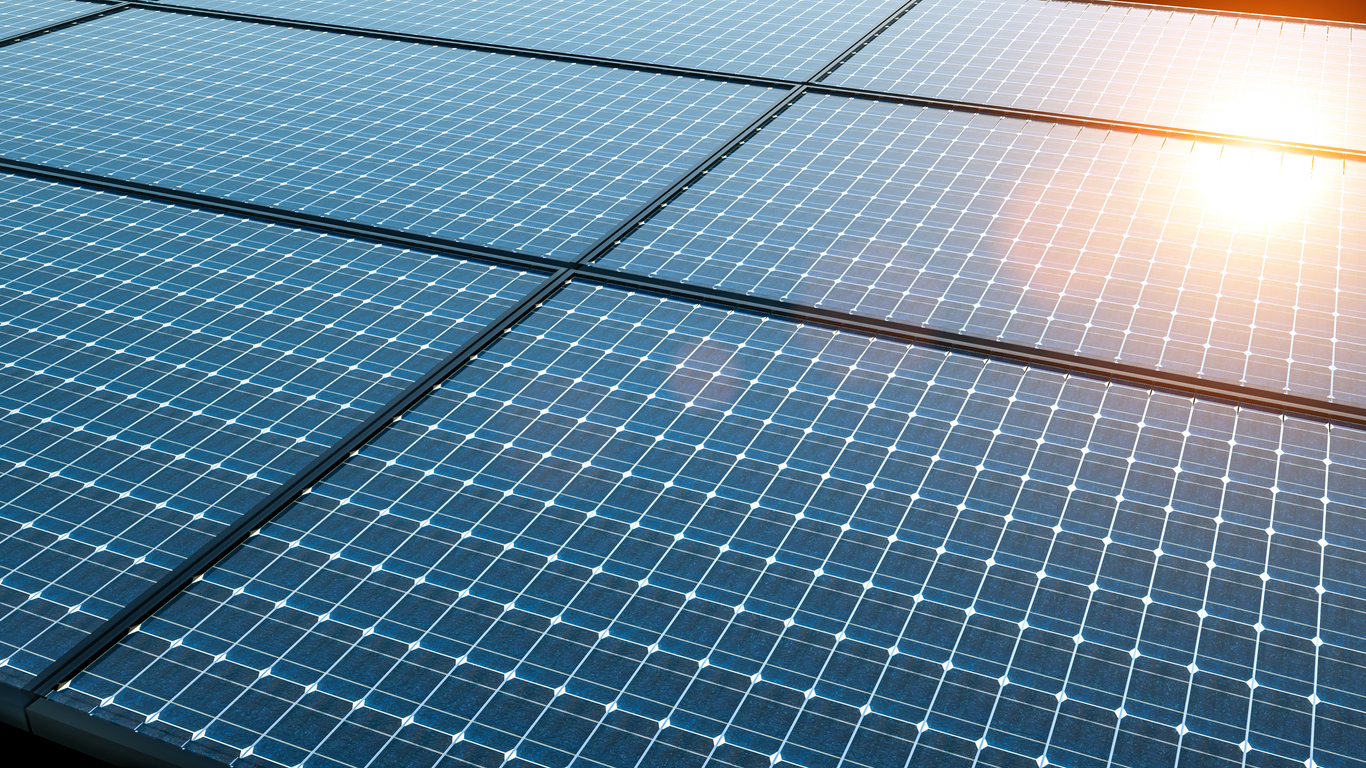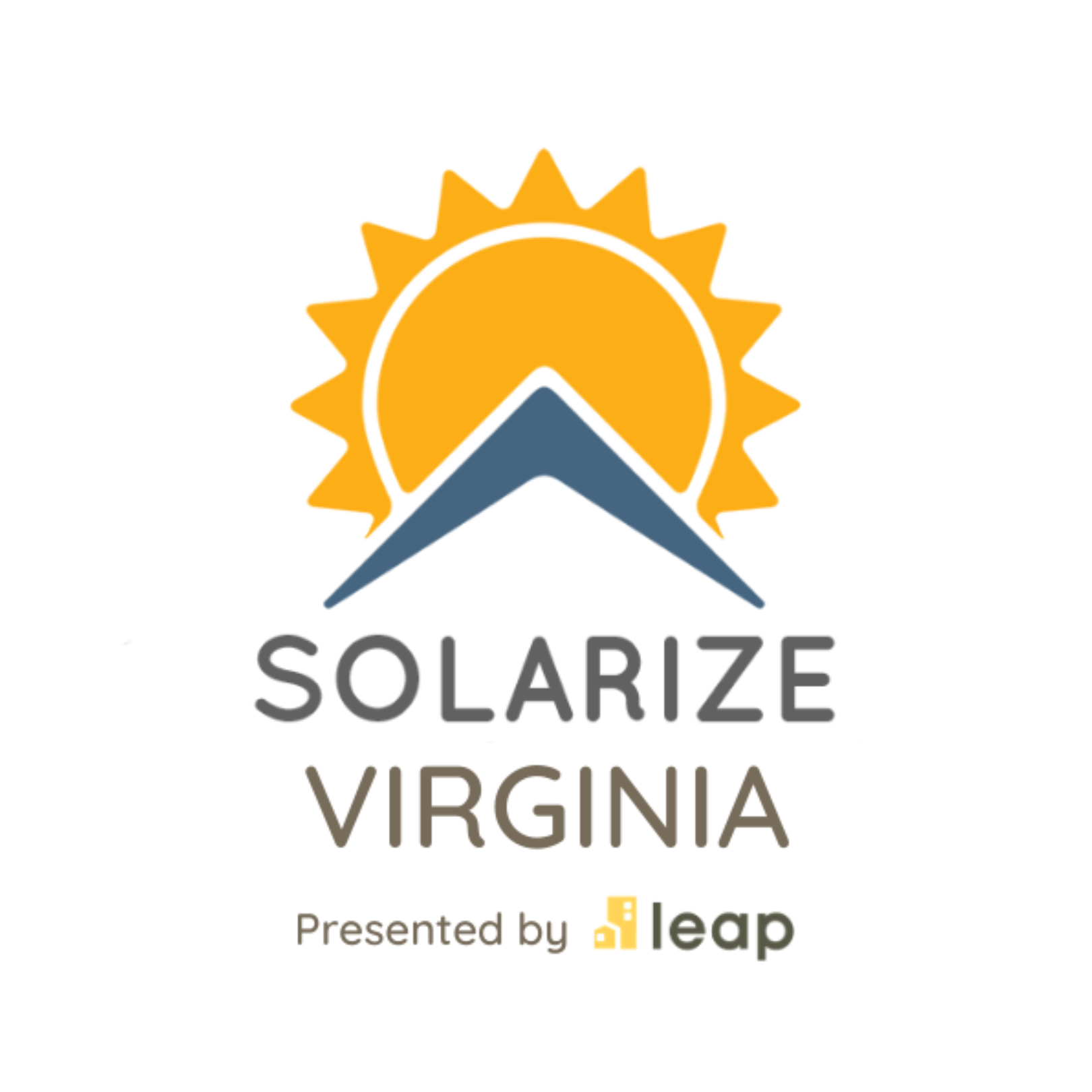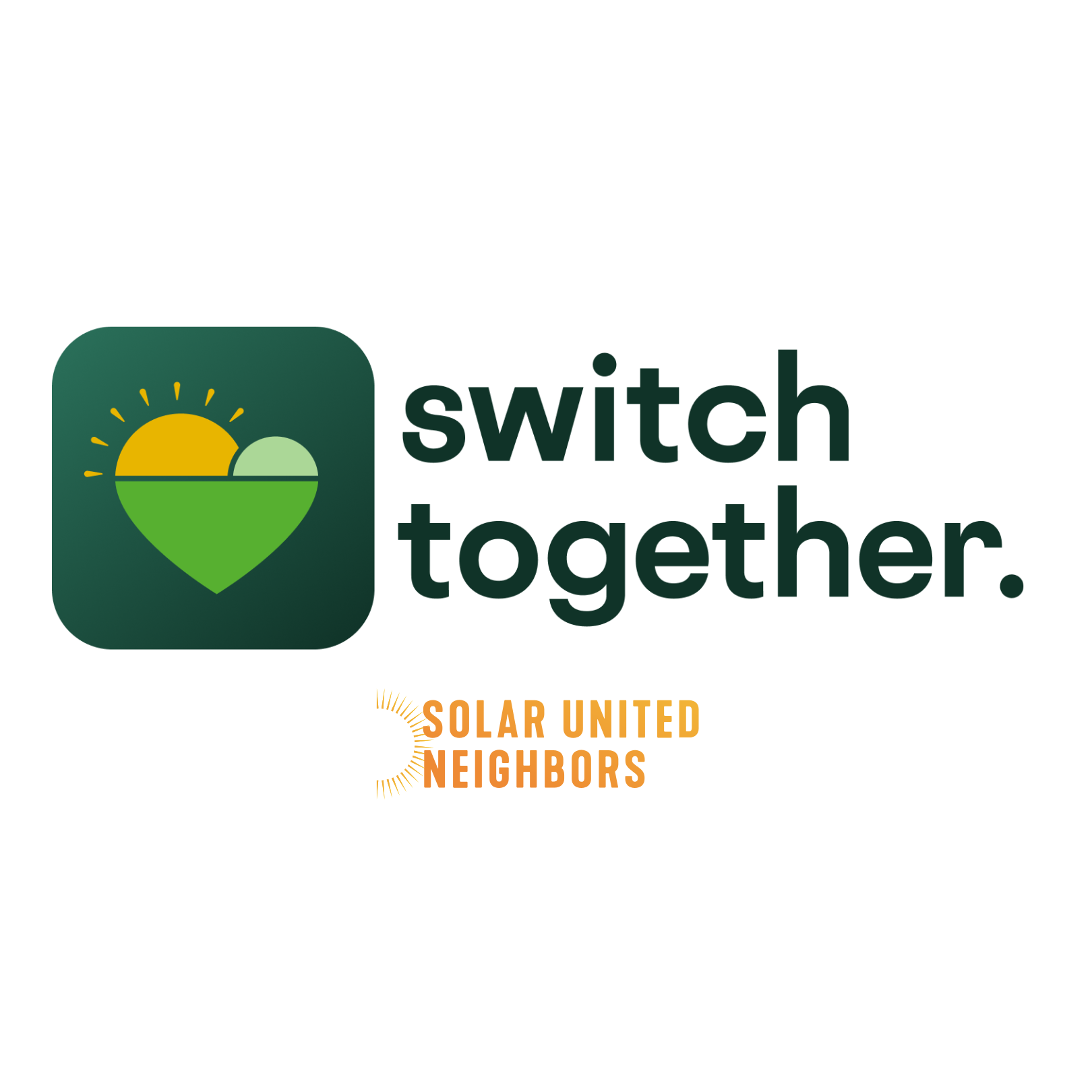Alert:

Fairfax County encourages residents to invest in solar energy. By using renewable energy like solar instead of fossil fuels, you help reduce pollution and planet-warming greenhouse gas emissions. And solar power can pay for itself in 10 to 20 years, so you’ll enjoy reduced energy bills, tax credits and other incentives, including extra protection from power loss during extreme weather when you invest in storage solutions.
On this webpage, you'll find resources for residents interested in installing solar panels in Fairfax County. For more information about the basics of solar energy, your solar options, and questions to ask solar professionals, refer to the U.S. Department of Energy’s Homeowner’s Guide to Going Solar.
Interested in letting the sun pay your bills? Two programs available to Fairfax County homeowners – Switch Together and Solarize Virginia – are back for another round! Participants receive a free assessment and quote from a vetted solar installer, and a guaranteed discounted rate!
Both programs are open for a limited time – so sign up now!
In the past decade or so, the climate change conversation has been shining a brighter light on solar panels. We understand that these panels convert sunlight into energy we can make use of, but how do they actually work? Learn more on our Climate Matters blog.
More Fairfax County residents are opting to install solar panels on their homes. Press play to hear from them how they made the switch and how it changed their lives for the better!
Solar energy uses a renewable energy source – the sun! In addition to reducing your electricity bill, using solar energy reduces your environmental impact and Fairfax County’s carbon footprint. You will also help reduce demand on the electricity grid during peak, sunny hours. Plus, installing solar panels can increase the value of your home. According to the National Renewable Energy Laboratory, every dollar that a solar panel saves you on your electrical bills increases the value of your home by $20.
The first step in getting solar is assessing whether your home or building is a good candidate. A few questions to ask when considering going solar:
You can investigate your property’s solar potential by visiting the Northern Virginia Regional Commission's NOVA Solar Map. You can also estimate the performance of potential solar projects using the National Renewable Energy Laboratory’s PVWatts Calculator.
Certified solar installers can be found through the North American Board of Certified Energy Practitioners®. Visit the county's Consumer Services webpage for general tips about hiring a contractor.
By going through a solar co-op purchasing program, homeowners are granted access to a pre-qualified solar installer for a no-cost evaluation of their property and can take advantage of cost savings should they decide to pursue a solar installation. More information on solar group purchasing programs can be found below.
Your electricity bill is based on how many kilowatt-hours (kWh) of electricity you use. Most homes use between 800 kWh and 1,500 kWh each month depending on weather, home size, energy efficiency and how many electric appliances are used.
The price of solar electricity is typically expressed in terms of dollars per watt of installed power. Typical pricing for residential systems is in the range of $2.50 to $4.00 per watt, depending on the size and market economics. A 5 kilowatt (5 kW) solar system will produce about 8,000 kWh of electricity per year. At $3 per watt, that system would cost about $15,000 to install.
By reducing electricity costs and taking advantage of tax incentives, the $15,000 investment can pay for itself in about 10-15 years.
Residential solar panels can be purchased outright or financed with a loan from a solar installer, bank, or other financial institution.

Solar group purchasing programs make getting solar easier and less expensive by providing information and benefits to participants. These programs typically offer:
Additionally, some programs offer participants a complimentary, virtual home energy assessment to help improve their home energy performance holistically. Those who decide to pursue solar through a group purchasing program typically receive a 10 to 15 percent discount off current consumer rates for solar arrays and systems.
 |
Solarize Virginia: This program is run by the Virginia nonprofit Local Energy Alliance Program (LEAP-VA). Since 2014, over 450 solar systems have been installed in Fairfax County through the Solarize program. More information is available at the Solarize Virginia website. |
 |
Switch Together: This program is run by the national nonprofit Solar United Neighbors (SUN) and is available to people living in and around the DC area. More information is available at the Switch Together website. |
Under Virginia state law (§56-594), residential customers may install systems up to 20 kilowatts and non-residential customers may install systems up to 500 kilowatts. Electric utilities must credit solar panel owners for excess electricity generated through something called "net metering." Your solar contractor should coordinate with your electric utility to replace your standard meter with a net meter after your panels are installed. The net meter is bi-directional, tracking electrons flowing both out of and into the grid.
Under Virginia state law (§55.1-1820.1), homeowner associations (HOAs) typically cannot prohibit solar installations. However, the law allows "reasonable restrictions concerning the size, place, and manner of placement." For more information refer to this Solarize webpage or talk to your solar installer.
Under Virginia state law (§55-353), property owners can form solar easements with their neighbors. A solar easement enables you and a neighbor to voluntarily form an agreement under which the neighbor will not shade your property. The easement then applies to later owners of the neighboring property.
Solar panels are permitted accessory structures on all developed properties in Fairfax County provided that they serve the property and are subordinate in purpose, area and extent to the building or use served. For more information, refer to the last entry on the Department of Planning and Zoning's FAQ page.
Some energy providers offer programs where you can buy "renewable energy credits," also known as renewable energy certificates or RECs. These programs are a good alternative for renters or residents of multi-unit properties (like apartments and condominiums) who want to use electricity from renewable energy sources but can’t install solar panels or other renewable energy systems or because they can’t afford the cost of installation.
Learn more about Renewable Energy Credits.
Fairfax County now offers a Solar Panel Recycling Program.
Residents can bring their solar panels to either the I-66 Transfer Station or the I-95 Landfill Complex Electronics Recycling area during regular hours. This service is exclusively for the disposal of residential solar panels and does not include pickup services.
Fairfax County residents should be aware of their rights and the regulations surrounding door-to-door solicitation in the county. If a salesperson comes to your door with information about solar panels or installation, please ask to see their county-issued license before engaging with them. Never provide your personal information (birthdate, social security number, etc.) to a solicitor.
If you encounter an unlicensed solicitor, please contact the Fairfax County Police non-emergency line at 703-691-2131. More information on door-to-door solicitation can be found here.
County Incentives
Fairfax County offers a number of incentives to encourage residents and businesses to install solar panels. The county's Land Development Services waives the permit fee for solar permit applications, and the county's Department of Tax Administration provides a 5-year solar energy equipment tax exemption. To learn about the permitting and inspection process, refer to Land Development Services' page about Residential Solar Permits.
Federal Tax Credits
The federal government currently offers a tax credit for solar PV system installation, to include the costs of the solar panels, contractor labor costs, balance-of-system equipment, and energy storage devices. Systems installed between 2022 and 2032 are eligible for a 30 percent tax credit. The credit will decrease to 26 percent for systems installed in 2033, to 22 percent for systems installed in 2034, and the credit will expire in 2035 unless renewed by Congress. The installation of the system must be complete during the tax year, and there is no maximum amount that can be claimed.
For more information on tax credits see the U.S. Department of Energy's Energy Savings Hub
Visit our Buildings and Energy page to find information and resources for exploring how cleaner and greener energy can be used to power our homes and businesses. This includes lowering your costs and your carbon footprint by being more energy efficient, adopting green building standards, and investing in renewable sources of energy such as solar.
